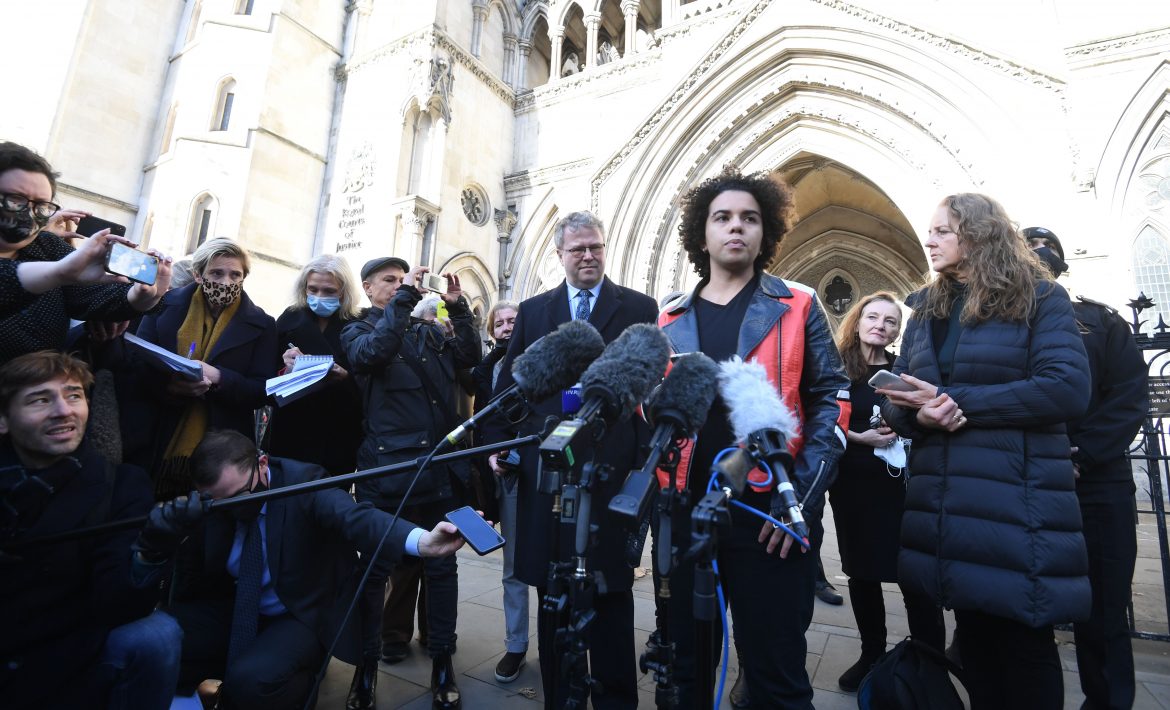The High Court verdict of December 1 that gender dysphoric children in England and Wales will need court approval to access puberty blockers signals a return to common sense.
In a landmark ruling, Dame Victoria Sharp, Lord Justice Lewis and Mrs Justice Lieven said it was “highly unlikely” that a child aged 13 or under would be competent to give consent to the administration of puberty blockers. It was also “doubtful” a child aged 14 or 15 could “understand and weigh the long-term risks and consequences” of the treatment.
Claimant Keira Bell, 23, detransitioned in her 20s having previously undergone treatment at the Tavistock and Portman NHS Foundation Trust from the age of 16. Bell brought the case against the trust because she said doctors did not challenge her enough over her desire to transition to a male body.
For Bell, taking puberty blockers was a “brash decision” that changed her life completely. Following the verdict, she said she hoped gender clinics would stop “playing God with our bodies [by] experimenting on the young and vulnerable with untested, harmful drugs”.
The High Court’s decision came as a disappointment for many in the transgender community.
A Stonewall spokeswoman said the hearing would only augment transphobia. “We were outraged when we heard about the ruling. This will clearly undermine children’s rights to healthcare. They just added more fuel to the fire,” she said.
Undoubtedly, many children who get such treatment will not go on to regret it. But the court’s verdict drove home that the issue of paramount importance is not a child’s right to transition, but a child’s right to be safeguarded by adults until it is certain they are able to make such critical decisions.
Bell’s victory should be seen as a harbinger for a more child-safe environment where reasoning, not feeling, prevails. “I was a slave to my feelings. I didn’t need drugs or surgery, I needed to know that I was just fine the way I was,” Bell said in an interview with Woman’s Place UK.
Why the ruling matters
The landmark ruling underlies how problematic NHS protocols have been. Out of 161 children in 2019-2020 referred to NHS Gender Identity Development Service, 95 were under the age of 16.
The significant increase in referrals for puberty blockers treatment in the UK over the past three years could have been a red flag. It may point to over-diagnosing a problem that in some cases – like Bell’s – may be passing.
According to the Telegraph, over the same time span, 35 psychologists resigned from the children’s gender-identity service in London in protest over the NHS overdiagnosing gender dysphoria.
In 2017, the Porto Biomedical Journal research said that gender dysphoria persisted beyond puberty in only 10 to 30 per cent of cases. A number of other studies came to the same conclusion.
These sorts of statistics do not get enough recognition from the NHS. Currently, what is implied under the Tavistock and Portman protocol as “detailed assessment” is on average between three and six sessions – essentially, not enough.
Dissenting voices
Among the harshest critics of hormone blockers in the UK is Stella O’Malley, a psychotherapist and the director of controversial documentary “Trans Kids: It’s Time to Talk”.
O’Malley said she suffered gender dysphoria in her teens, before realising that her angst was just part of the terrain of self-discovery. She argued that over-diagnosing gender dysphoria stems from sweeping gender stereotypes.
“This situation with gender dysphoria was getting out of hand. By default, they assume that any child who strays from the gendered clothes or behaviour is the Tavistock patient, but no,” she said.
“When politics gets mixed up with science, everybody suffers. This ‘new normal’ has to be challenged.”
Transgender activists intent on recognition for non-binary children must also factor in the irrevocable damage that puberty blockers can entail. They fail to recognise that the feeling of being trapped in the wrong body might be just a phase, and this intrusion into puberty can prove detrimental.
While blockers are sometimes positioned as merely a “pause button” for puberty, the treatment often leads to others, which have many longer-term consequences.
Doctor Michelle Cretella, executive director of the American College of Pediatricians, warned three years ago that those puberty-suppressing drugs are immensely harmful.
According to her, the ideological narrative behind the routinisation of puberty blockers was infecting the medical community and beyond, and described hormone blockers as “institutionalised child abuse”.
Yet only a smattering of professionals dare to question the “safety” discourse in the UK, worried of coming under fire or being accused of transphobia.
Contrary to campaigners’ narratives, the jury is still out on the long-term effects of many drugs used in such treatments.
For now, though, the message from the High Court ruling is clear: it’s a child’s right to be a child. As Bell said: “…common sense has prevailed”.






